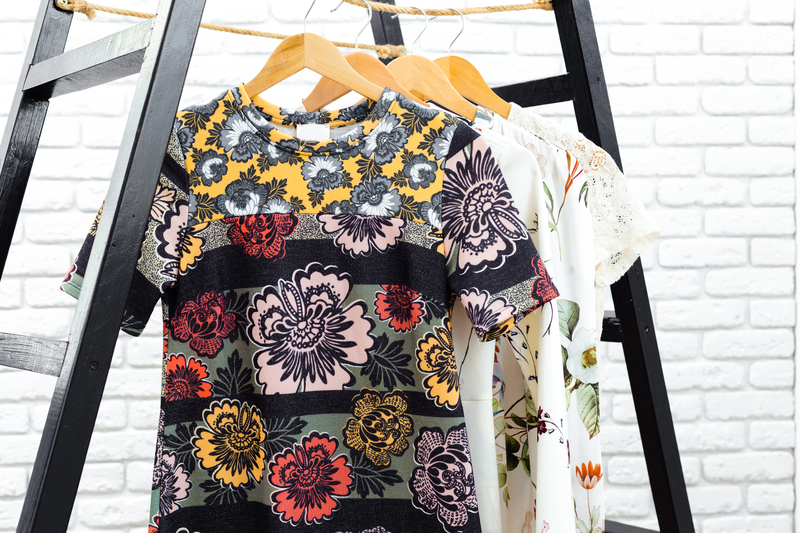Less is More: The Secrets of Minimalist Living
Minimalism has become more than an interior design trend; it's a conscious lifestyle that emphasizes clarity, intention, and fulfillment. Whether you crave more serenity, wish to spend less, or want to focus on what truly matters, embracing the secrets of minimalist living can have a transformative impact. In this comprehensive guide, we'll reveal the real meaning behind "less is more," the proven benefits of minimalism, and actionable tips to help you start living with intention today.
What is Minimalist Living?
Minimalist living is all about streamlining your life, possessions, and commitments so that each element truly serves a purpose or brings joy. Rather than a cold or empty existence, minimalism cultivates a lifestyle where quality is prioritized over quantity.
Imagine a home free from clutter, a calendar filled only with meaningful commitments, and mental space liberated from unnecessary distractions. That's the essence of the minimalist lifestyle.
The Philosophy Behind "Less is More"
The phrase less is more beautifully summarizes the minimalist philosophy: by reducing excess, we uncover what's truly essential. Minimalism isn't about deprivation--it's about making room for more value, more joy, and more purpose in our lives.
- Intentional living: Minimalists deliberately evaluate what they own and do, keeping only what truly matters.
- Simplicity over excess: This lifestyle reduces physical and emotional clutter for greater peace.
- Prioritizing experiences: Minimalism often means valuing memories and relationships over material things.

The Powerful Benefits of a Minimalist Lifestyle
The advantages of minimalist living extend far beyond tidy spaces. Here's what you can expect when you embrace the "less is more" way of life:
- Reduced Stress and Anxiety: Clutter and disorder contribute to feelings of overwhelm. Minimalism promotes mental clarity by eliminating distractions.
- Financial Freedom: By buying less and focusing on what's essential, you save money and avoid debt.
- More Time and Energy: Fewer possessions mean less time spent cleaning and organizing, freeing you for what matters most.
- Improved Focus and Productivity: Simplifying your environment and commitments allows deeper concentration and creativity.
- Environmental Impact: Minimalists consume less, reduce waste, and often make more sustainable choices.
The secret to long-term contentment isn't found in accumulating more--it's in cherishing what you have and keeping life simple.
How to Start Your Minimalist Journey: Practical Tips
Are you ready to unlock the secrets of minimalist living? Here are some actionable steps to help you begin your transformation and adopt the minimalism lifestyle:
1. Set Clear Intentions
Before you declutter, define your "why." Why do you want to simplify your life? Financial freedom, peace of mind, or a desire for sustainability can all be motivating factors. Write down your goals and keep them visible as you embark on your journey.
2. Declutter Your Environment
Clutter is the antithesis of minimalist living. To achieve a "less is more" lifestyle, start by removing non-essential items from your home.
- Sort Room by Room: Tackle one area at a time--kitchen, closet, garage. Keep only what you use or truly love.
- Ask the Essential Questions: When evaluating items, ask: Do I use this? Does it bring me joy?
- Donate, Sell, or Recycle: Give new life to items you no longer need by donating or recycling them, or selling if possible.
3. Simplify Your Wardrobe
Minimalist wardrobes, or "capsule wardrobes," exemplify the beauty of less is more. Limit your clothing choices to multipurpose, high-quality pieces that you genuinely love to wear. You'll save time each morning and still look effortlessly stylish!
4. Digitally Declutter
Minimalism doesn't stop at your home. Evaluate your digital life--emails, apps, files, and even social media accounts. Keeping only what's necessary will help you avoid distraction and use technology with intention, a core secret of minimalist living.
5. Limit and Curate Commitments
Minimalist living is about making time and space for what truly matters. Don't be afraid to say "no" to obligations that don't align with your values or goals. Prioritize activities that bring fulfillment.
6. Adopt Mindful Purchasing Habits
- Delay Gratification: Give yourself a waiting period before new purchases. Is it a need or just a want?
- Invest in Quality: Buy less but choose durable items that will last.
- Seek Multipurpose: Opt for items that serve multiple uses to avoid unnecessary clutter.
7. Practice Gratefulness and Contentment
Gratitude is fundamental to the minimalist lifestyle. Appreciate what you have, and focus on contentment over endless consumption. Being intentionally grateful helps you resist the pull of materialism, reinforcing the "less is more" philosophy.
Minimalism in Everyday Life: Beyond Your Home
The secrets of minimalist living extend well beyond your physical environment. True minimalism can positively impact all aspects of life:
Minimalist Finances
- Track Expenses: Know where your money is going. Eliminate unnecessary subscriptions and impulse buys.
- Automate Savings: Prioritize saving and investing for future goals, not fleeting purchases.
- Adopt a "less is more" mindset in spending: Buy what adds real value and skip the rest.
Minimalism and Relationships
- Quality over Quantity: Nurture deep, meaningful relationships rather than maintaining a large network of acquaintances.
- Prune Social Commitments: Choose gatherings and activities that align with your interests and values.
Minimalism at Work
- Declutter Your Workspace: Keep only necessary tools and remove distractions.
- Simplify Workflow: Focus on essential tasks and outcomes instead of multitasking.
- Set Clear Priorities: Use the "less but better" motto to manage your time and deliver your best work.
Common Minimalist Myths: Debunked
As popular as minimalist living has become, misconceptions still abound. Here are some common myths--and the truths behind them:
-
Myth 1: Minimalism means deprivation.
Truth: Minimalism is about enjoying more of what matters by letting go of the rest. -
Myth 2: You need to have a stark, white home with no personality.
Truth: Minimalist living is about intentionality, not aesthetics. Your space can--and should--reflect your personal style. -
Myth 3: Minimalism is only for single people or young professionals.
Truth: Anyone can benefit from the principles of "less is more", from families to retirees, regardless of lifestyle.
Success Stories: How Others Have Embraced Minimalist Living
Thousands around the world have adopted a less is more lifestyle--and have experienced powerful changes. Here are just a few inspirational stories:
- Sarah, 34: After downsizing her possessions, she reports having more energy and focus for her creative projects.
- The Jacksons, a family of 5: By limiting screen time and excess toys, family relationships grew closer and evenings became more peaceful.
- Mike, 58: Embracing minimalist finances allowed him to retire early and pursue his dream of travel.
Their experiences prove that living simply can lead to a life rich with purpose, connection, and happiness.
Challenges You May Face--and How to Overcome Them
While adopting minimalist living brings many rewards, it's natural to encounter hurdles. Here's how to move past them:
- Emotional Attachment: Letting go of items with sentimental value can be tough. Keep a small box for treasures or try photographing items before donating.
- Comparison: Minimalism is personal. Don't compare your journey to others--focus on what brings you fulfillment.
- Setbacks: It's normal to accumulate clutter or overcommit occasionally. Gently reset and return to your "less is more" intentions.
Tips to Maintain Minimalism Over the Long Term
- Schedule Regular Decluttering Sessions: Periodically review your possessions and commitments.
- Practice Mindful Consumption: Resist impulse purchases and prioritize quality over quantity.
- Reflect and Reevaluate: Your needs and values may change; take time to adjust your space and commitments accordingly.
The Sustainable Link: Minimalism and the Earth
Among the lesser-known secrets of minimalist living is its positive impact on the environment. By:
- Consuming less: You reduce waste and pollution.
- Buying thoughtfully: You support businesses that prioritize ethics and sustainability.
- Maintaining what you own: You extend the life of your possessions and save resources.
Minimalism isn't just a lifestyle choice--it's an eco-friendly philosophy that benefits us all.

Is Minimalism Right for You?
Wondering if minimalist living fits your situation? Ask yourself:
- Do you feel overwhelmed by clutter, possessions, or commitments?
- Are you dissatisfied by constant consumption or materialism?
- Do you crave more mental clarity, peace, and intention?
If you answered yes to any of these, consider starting with a small step. Even a single change can set you on the path to a more purposeful, contented life.
Conclusion: Embrace the Secrets of a Minimalist Lifestyle
The core message of minimalist living isn't about rigid rules or aesthetics. It's about intentionally choosing less to enjoy more--more time, freedom, contentment, and connection.
Whether you're just starting out or looking to deepen your experience with minimalism, remember: every small step toward simplicity brings you closer to a more meaningful, abundant life. Less really is more.